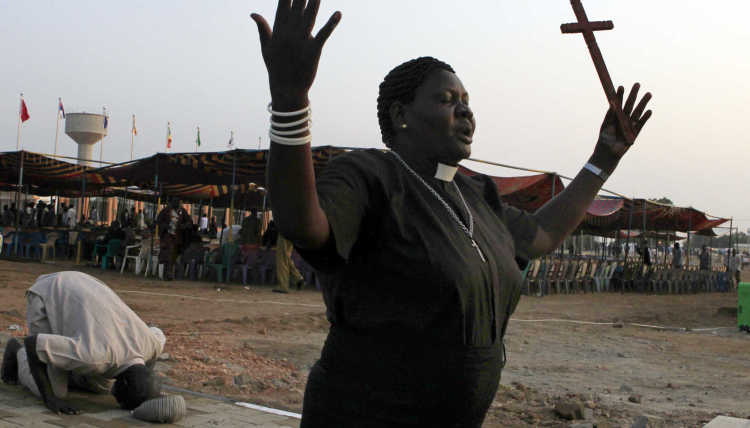Publication | 07/03/2016
When Religious Leaders Support Violence
Why do some religious leaders support violence, while others do not? In an article published in Political Research Quarterly, Matthias Basedau and Carlo Koos shed light on these and other questions.

The First Crusade, the terrorist attacks of September 11, and the political violence perpetrated by religious groups in the Middle East and Africa all demonstrate the crucial role of religious leaders in conflicts. But what makes religious leaders support either peace or violence? In their article “When Do Religious Leaders Support Faith-Based Violence? Evidence from a Survey Poll in South Sudan,” published in Political Research Quarterly, GIGA researchers Matthias Basedau and Carlo Koos analyse the attitudes of religious leaders toward violence.
Will male and younger religious leaders support violence more readily? How does personal experience with violence affect their attitudes? Matthias Basedau and Carlo Koos first look at classical demographic and biographical determinants. Subsequently, they hypothesise that religious attitudes and behaviours such as intolerance toward other faiths, threat perceptions vis-à-vis other groups, and the lack of interreligious activities could also increase the support for violence.
Drawing from a survey poll of 102 religious leaders conducted in October 2012 in Juba, South Sudan, results show that pro-violence attitudes do not depend on individual demographic determinants, but rather on religious convictions: Those leaders who embrace secularism and are tolerant of other faiths reject religion-based violence – and vice versa. The researchers also found evidence that choices to back peaceful or violent protests follow different logics.
“It can be assumed that in South Sudan religious leaders who are intolerant of other faiths are also more likely to embrace violence based on religious grounds,” says Matthias Basedau. "In this respect, religious leaders should be considered as a warning indicator in potentially violent circumstances.”
Even though the authors do not want to generalise their research results beyond the case of South Sudan, they consider them an important contribution to the study of conflict and processes of political mobilization in general.
The article can be read here.

